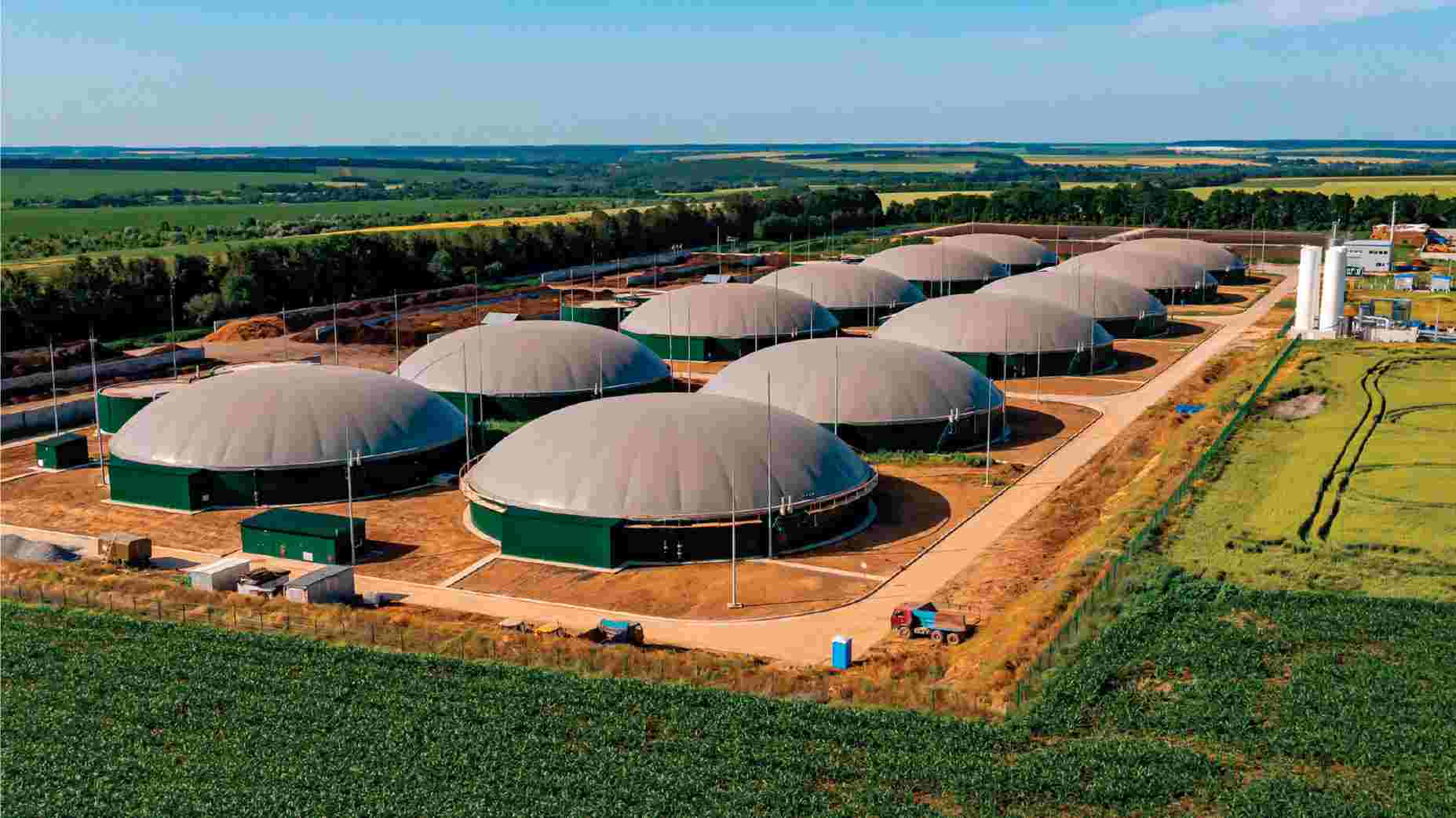Mandatory Biogas Blending Welcomed But Govt Must Work On Other Fronts Too: Industry

The Central Government has announced the CBG Blending Obligation (CBO) envisaging mandatory blending of compressed biogas in CNG (Transport) and PNG (Domestic) segments. This will be a phase wise development through which the government expects to promote production and consumption of compressed biogas (CBG) in the country furthering the circular economy.
While announcing the policy, Union Minister For Petroleum and Natural Gas and Minister of Housing and Urban Affairs Hardeep Singh Puri held that the new policy will encourage investment of Rs. 37500 crores and facilitate establishment of 750 biogas projects in coming six years. The policy would kick in from FY 2025-26.
The biogas industry has welcomed the move that will spark animal spirits and bring investments but at the same time, has appealed to the government to give a serious look to the loopholes that might spoil the party.

Shantanu Kishore Aggarwal, Director, Bharti Waters, says, “I see the full potential will now be realized in the commercial aspects. It’s a positive and welcome move. Stronger policies towards green energy are definitely going to benefit the biogas industry.”
The CBO shall be kept as 1%, 3% and 4% of total CNG/PNG consumption for FY 2025-26, 2026-27 and 2027-28 respectively. From 2028-29 onwards CBO will be 5%. The CBO policy is for the transport and domestic sector only. Aggarwal says that energy generation regarding compressed biogas has a low threshold and the transport sector requires a high level of CBG. Once the quality standard is met, the CBO could easily be translated to other sectors as well.
Agarwal held that the monitoring of the gas coming out of the biogas plants is important. A monitoring threshold has to be set. A system has to be in place to ensure that the name of bio-CNG doesn’t go down. One plant giving bad quality biogas brings a bad name to the entire industry. Production of hydrogen sulfide and methane should be of good quality.
He adds, “India is set to be a leader in the bio-fuels in the coming years if not by the end of next year. The amount of untapped waste we have in the country can give an extra push to the green energy and green environment. I think the government’s emphasis on landfills covering is not on that level right now. If that comes, it would be a very welcome move.”

Kumar Neelendu, Bio-CNG Expert and Co-Founder of Farmwatt Innovations, says that the CBO policy is a supplement to what is already happening in the sector. He says that CBO will provide a ‘reverse push’ to support biogas plants in India that will help reduce import dependence. “India looks to build 5000 plants, but if we get even 1000 bio-CNG plants of reasonable sizes (10 tons & above), it will be a great change for everyone.”
Kumar holds that the government needs to work on other fronts to ensure that CBO is a success. He says that the government machinery on the ground should work to ensure proper feedstock supplies to the plants. A Reliance plant alone needs 70,000 tonnes of parali or paddy straw annually that often becomes a challenge to source. He holds, “The government schemes and plans to overcome the supply challenge also have their own flaws due to which the supply of raw material to plants failed. State oriented plans should be made to ease supply chain problems.”
Kumar opines that if players increase with policy support, then 10-20% of bio-CNG blending is also possible; Ethanol blending is already a success. On the question of financing, Kumar says, “There is PSL lending (priority sector) but the benefit is limited to big companies and it’s tough for the startups.”
Kumar adds that bio-CNG plants should also have options and resources to have their own pumps to sell their own products which will be 100% bio-CNG and make better profits. Here the profits shared by the oil marketing companies will be eliminated and more & more plants will come up motivating the producers.

Aashish Dutt, Co-Founder of Pune based SAAF Energy, believes that CBO is the need of the hour and it’s in line with the global trend of promoting biogas. He says that the new policy will unleash and unlock tremendous demand helping produce thousands of metric tonnes of biogas.
“The way our economy is structured, I think the top-down approach is the right way that the policy would have been done,” mentions Aashish Dutt. “From the surface of it, the policy is a natural progression. First came CNG, then bio-CNG, and thereafter SATAT scheme offering demand security to biogas. The CBO policy will invite injection of bio-CNG through the piped network of the country. The CBO is further connecting the dots.”
The SAAF Co-Founder also advises the government – policies’ nitty gritty & bottlenecks at the ground level have to be seen. “We need to see how we go bottom-up addressing the bottlenecks to see real success. The elephant in the room is the supply side. If supply of feedstock/waste materials remains weak, we would only see MoUs & announcements only. We need to translate the projections and forecasts from the demand side into reality on ground level through our pipelines and national networks.”
Dutt believes India’s gas pipeline network should be strengthened on priority. “Our pipeline network is still evolving and it’s not nation-wide spread. Therefore this mandatory bio-CNG blending will take place through the pipeline. There is some deficiency first and foremost on the actual gas network. The infrastructure and the interface have to be developed without which the CBO will not actually translate,” he opines.

Many industry experts hold that CBO order will favour big corporations and big businesses. Aashish Dutt has a different view on this, “The new policy will have a trickle-down effect that will encourage investments that have never been seen before in the sector. The credit goes to the government. As a result of the big investments coming in, other players (small ones) will also benefit. We are already witnessing Tier-II companies or suppliers benefitting from the previous policies.”
Dutt believes that the mandatory bio-CNG blending announcement is right now just a drop in the ocean but it will eventually grow bigger & bigger.




